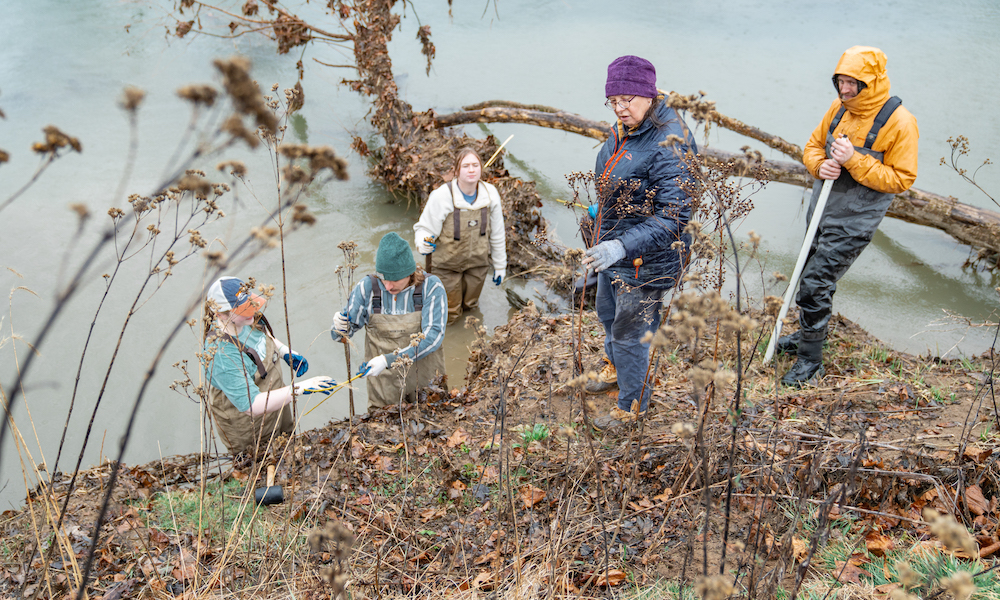The Princeton Review once again recognizes JMU environmental sustainability efforts
Environmental Stewardship
James Madison University has once again received national recognition though inclusion in The Princeton Review’s Guide to Green Colleges, 2024 edition. The University has been selected every year since the guide was first published in 2010. This free, online guide is presented as a resource for college applicants who are looking to attend schools that foster a culture of environmental responsibility.
Using primarily survey data from administrators at 683 colleges in 2022–23 with more than 25 survey data points, the 2024 edition of the Guide features profiles of 522 schools that “have exceptional programs, policies, and practices related to sustainability and the environment” [Source]. Profiles include details of each school’s green distinctions, such as environmental academic offerings, students working to advance sustainability, and waste minimization and diversion, as well as general information of interest to prospective students, such as admission requirements.
The Princeton Review editors tallied Green Rating scores for the schools on a scale of 60 to 99, and colleges with a score of 80 or higher were selected for the Guide. JMU received a Green Rating of 93, which can be found along with sustainability highlights in JMU’s profile under the tab “Campus Life,” subtopic “Sustainability” in the Guide.
“Since we debuted our Green Guide 14 years ago, we have also seen dramatic growth in the number of colleges committing to sustainability-related practices — from sourcing food from local purveyors to constructing LEED- certified buildings to making fossil fuel-free commitments,” stated Rob Franek, editor-in-chief, The Princeton Review, in the press release for the Guide.
According to The Princeton Review’s 2024 College Hopes & Worries Survey, 61% of college applicants responding selected that “a college’s commitment to the environment would contribute to their decision to apply to or attend the school” [Source]. According to Amanda Bodle, program manager for the Institute for Stewardship of the Natural World at JMU, “As students become increasingly concerned about the environmental impact of the schools they attend, JMU has continued to be committed to environmental stewardship and sustainability in education, research, service, and operations.”
The Institute for Stewardship of the Natural World coordinates environmental stewardship efforts across campus, advocating for priorities and challenging all members of the James Madison community to think critically about their role in achieving the long-term stewardship of Earth. JMU’s efforts are furthered by affiliations with Tree Campus USA and Bee Campus USA, a Bicycle Friendly University designation, and green buildings led by Facilities Management. In 2022, JMU was listed No. 27 among The Princeton Review’s Top 50 Green Colleges based on a combination of school-reported data and student opinion.
JMU sustainability highlights for 2021-2023 can be found here. More information on campus sustainability can be found on the ISNW website.
